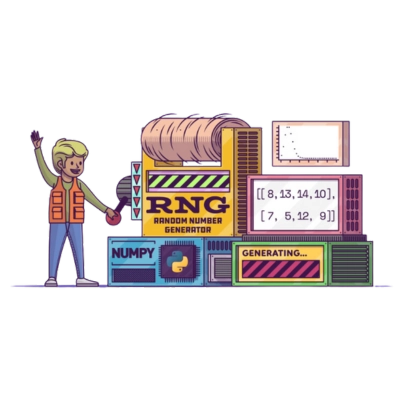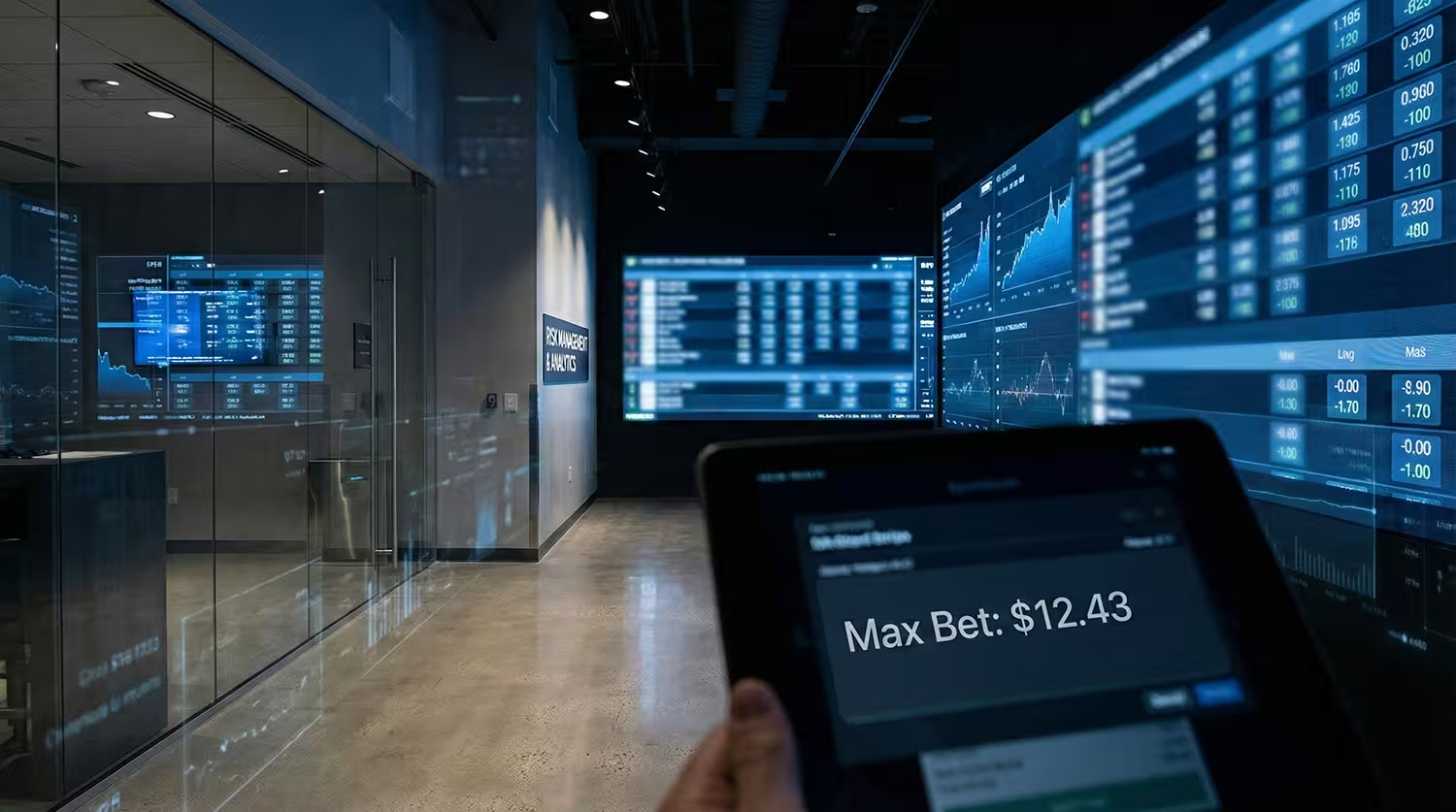Can Gambling Algorithms Be Hacked? The Truth Behind Casino Software Security

Okay, we are going to cut to the chase with this topic—are online casino games rigged? Can they be hacked? You know you’ve wondered if it’s possible, and we have, too!
The short answer? Possibly. But it’s a rare possibility. The games we play on gambling sites are designed to be safe and fair, but we like to question everything around here. And this question certainly merits an examination when you are playing with real money! When you have cash on the line, it’s totally normal to wonder if someone, somewhere, somehow, is playing the system.
Because online gambling has become so popular, there has to be trust between the players and the sites they use. Players want to be assured that they’re getting a fair shot, and casinos are more than aware that even a hint of rigging would ruin their rep.
So, while the notion that gambling algorithms can be hacked is pretty much a myth, it could happen, as nothing is 100% guaranteed. No system out there is totally immune to tampering, but online casinos put serious resources into making sure that all of the games are secure and fair. With that being said, let’s get into the truth behind casino software security!
How Do Gambling Algorithms Work?
When you play an online slot or place a bet in a digital card game, there is a lot happening besides the fun graphics and beep-boop-boop sounds. In addition to the action happening in front of you, the software is hard at work running the games. Part of this software is a little something called a Random Number Generator (RNG), and this tech is what verifies that every single spin, deal, or roll is unpredictable and fair. How exactly do these gambling algorithms work, and why are they so important to the integrity of online gambling? Look below to find out!
What Are Random Number Generators (RNGs)?
Random Number Generators, aka RNGs, are a pillar of online casino games—these babies keep the games fair by generating outcomes that are always unpredictable. You could look at an RNG as a sort of high-tech dice roller that’s constantly at work behind the screens. The second you click “spin” or “deal,” the RNG has already generated a random result, and it’s this result that determines what happens.
The following are the two main types of RNGs that are used in online gambling:

- Pseudo-Random Number Generators (PRNGs): These are the most common type and rely on algorithms to produce sequences of numbers that appear random. PRNGs use an initial value, called a seed, to kick off the number generation process. If you knew the seed (which is virtually impossible without insider knowledge), you could theoretically predict the sequence. But the complexity of the algorithms means they are nearly impossible to crack, which is why they’re so used so often in the industry.
- True Random Number Generators (TRNGs): These use physical phenomena, which can be compared to atmospheric noise or radioactive decay, to generate numbers. Because they rely on naturally occurring, unpredictable events, TRNGs produce truly random results. Alas, they’re much less common in online gambling because of their intricacy and the resources that are required.
How RNGs Simulate Randomness in Casino Games
RNGs are working their magical algorithms even when no one is playing. In slot machine games, the RNG is constantly generating numbers. When you hit that “spin” button, the RNG picks the number it’s on at that exact moment, and that number determines the outcome of the spin. It’s a process that verifies that every spin is independent of the last, so there’s absolutely no way to predict what will pop up next.
In card games like poker, the RNG shuffles a virtual deck of cards randomly, and each time a hand is dealt, it’s as if the deck has been reshuffled by an invisible dealer, which means that no two games are ever the same.
The Importance of RNG Auditing
We’ve established that RNGs are a must for fair play in online gambling, but how do we know that they’re actually working as they’re advertised to the public? Good question! The answer is third-party auditors. These are organizations that specialize in testing and certifying RNGs to make sure they’re producing random and unbiased results.
Two of the most prominent names in RNG auditing are eCOGRA and GLI (Gaming Laboratories International). These auditors don’t just check RNGs once and stop there—they are conducting ongoing tests to guarantee the RNGs keep functioning correctly. They examine everything from the algorithm’s randomness to its consistency over time. By doing this, these orgs are helping to build trust between players and casinos.
eCOGRA and GLI are the most well-known auditors, but they’re not the only ones! There are several other reputable organizations around the world that also do RNG testing:
- iTech Labs: Based in Australia, iTech Labs is known for its comprehensive testing procedures. They’ve been in business since 2004 and have built up a strong reputation for ensuring fairness in online gambling.
- BMM Testlabs: One of the oldest testing agencies in the gaming industry, BMM Testlabs has been around since 1981, providing a host of services, including RNG certification, and has a global presence.
- Quinel: Operating primarily in Europe, Quinel offers independent RNG testing and certification services. Their reports are detailed, and their testing is rigorous—they’re a trusted name in the gambling industry.
- SQS Group: Based in Germany, SQS concentrates on software testing and quality assurance, and that encompasses RNG certification for online gambling platforms.
The RNG Auditing Process
What are auditors looking for when they test an RNG? For one, they are checking that everything is working properly, among other things. The following is what else they are checking up on:
- Randomness: The RNG has to produce results that are genuinely random, and auditors perform extensive statistical tests to make sure there are no patterns or biases that could even potentially influence a game.
- Security: The RNG must be secure from tampering—they check this by reviewing the source code and guaranteeing that the RNG is implemented in a way that will prevent any form of manipulation.
- Consistency: The RNG has to consistently produce random results across all games and over time, which means that every player has an equal chance of winning.
Can Gambling Algorithms Be Hacked?
You’re about to start a game of blackjack on your go-to gambling site when an intrusive thought enters your mind: How do I know that this game is fair? Or you might wonder if someone could hack the system and win a jackpot.
These aren’t unreasonable questions! After all, there are data breaches all of the time. But before you spiral out or go down a rabbit hole of conspiracy theories, you need to separate fact from fiction and myth from reality that surrounds the security of gambling algorithms!
Common Myths About Casino Hacks
Sorry, but just because you saw the movie Hackers once or watched the TV series Mr. Robot doesn’t make you an expert on hacking. Is it possible? Sure. But the pervasive myth that gaining access to a casino’s software would be a cinch for anyone with the right technical skills is bonkers. The idea of this has been propped up by movies and TV shows where a hacker, sitting in a dark room surrounded by computer monitors, breaks into a system and manipulates it in order to steal millions. But like most things that are portrayed on the big and small screens, it’s not a reality outside of Hollywood.
The casino software is incredibly sophisticated and is built to withstand almost every type of possible attack. We aren’t just talking about throwing up a firewall; the systems are developed with so many layers of security that getting unauthorized access is extremely difficult. Yet, despite the protections put into place, the myth persists that any decent hacker can get into these systems.
A big reason for this misconception is that most people don’t really understand the complexity of the software that powers online casinos. They see the nice interface and assume that it’s all there is to it. But behind that sleek interface is a labyrinth of code and security measures that are designed to keep the system secure. And the RNG algorithms we talked about earlier that are used to determine game outcomes are especially well-guarded.
The idea that casino software is vulnerable to simple hacks usually pops up from stories about cybersecurity breaches. But those incidents involve totally different types of attacks, like phishing schemes or social engineering, rather than direct manipulation of the gaming algorithms. There was a case that involved hackers who exploited security flaws not in the game itself, but in the casino’s payment processing system, but that was more about finding weak spots in the bigger infrastructure and not hacking the games to manipulate outcomes.
The Reality of Casino Security
Back in the real world, hacking into the algorithms that determine game outcomes is exceedingly rare and super difficult. That’s not to say that casinos haven’t been targeted—there have been attempts, but they have fallen well short of the dramatic success some might conjure up.
When we talk about the security of online casinos, it’s important to understand the sheer depth of protection in place. The systems are designed by teams of experts who anticipate and defend against numerous potential threats. The algorithms that run the games are almost always the most secure part of the entire system—we’re talking about RNGs again.

To further protect against such threats, casinos employ several layers of security besides the basic encryption. SSL (Secure Sockets Layer) encryption is just the start, and it guarantees that any data transmitted between the player and the casino is securely encrypted and prevents anyone from intercepting it. But that’s only one part of a bigger security strategy.
A hacker did manage to exploit a weakness in a casino’s security, but it wasn’t a case of cracking the RNG or manipulating the game’s outcome—the hacker used social engineering, which is a technique that tricks people into giving up sensitive info. They got access to an employee’s login credentials, and could then access the system, but even then, altering game outcomes proved to be impossible.
Casinos also use multi-layered security protocols, which include two-factor authentication (2FA) and behavioral analysis systems. 2FA requires players to provide a secondary form of verification, like a code sent to their phone, which adds more protection against unauthorized access. Behavioral analysis monitors player activity for any signs of unusual behavior, like sudden changes in betting patterns or access from unfamiliar devices. The casino’s security team will intervene ASAP if anything suspicious is detected.
All of these measures make it extraordinarily difficult for hackers to succeed. Even if they do manage to breach one layer of security, they will be stopped by another. And if all else fails, the casino’s ongoing monitoring and regular security audits verify that any possible vulnerabilities are quickly identified and addressed.
The Complexity of Casino Software Security
Online casinos are built to be like digital vaults—not only are they guarding the outcomes of the games, but also the personal and financial info of millions of players. Every spin of a virtual slot or deal of a digital card is backed by a web of intricate software that is designed to be as secure as possible. The security of this software isn’t solely for protecting the money; it’s built so that every game is fair, every transaction is safe, and every player’s data is secure. Below, we’ll take an inventory of the strong systems that are in place that make hacking these platforms a mission impossible.
Built-in Security Features of Casino Algorithms
Casino software is constructed with numerous layers of defense, each designed to prevent tampering and make sure that the games are fair. One of the main elements of this security is the Random Number Generator (RNG), which is not just a simple number generator; they are advanced piece of software that verify every outcome in a game is totally random, and the generators are meticulously tested and certified by independent bodies to make sure they are working as intended.
And some online casinos have begun to integrate blockchain technology into their systems! Why? Because the blockchain is a decentralized way of recording transactions, meaning that once a game outcome is recorded on the blockchain, it cannot be altered without being detected by the entire network. The transparency and immutability add an extra safeguard, so it is pretty much impossible for anyone to tamper with the game results.
Moreover, casino algorithms are typically designed with self-checking mechanisms built in—they are constantly monitoring the software for any irregularities. If an anomaly is indeed detected, the system can shut down or alert security teams before any damage is done. A proactive approach means that even if someone attempts to interfere with the software, their actions are detected and thwarted before they can have any kind of real impact.
Why Hacking Is Almost Impossible
Movies and TV series tend to glamorize the idea of hacking into a casino system, but the reality is really kind of boring and less Bond-esque. The obstacles that any would-be hacker would come up against are nothing to sneeze at. The first major one they would hit is encryption. All data transmitted between players and the casino is heavily encrypted, using tech like SSL (Secure Sockets Layer) and TLS (Transport Layer Security). This encryption means that even if a hacker manages to intercept the data, they wouldn’t be able to decipher it without the necessary keys, which are kept securely out of reach.
In addition to encryption, online casinos implement multi-factor authentication and access control systems. These measures ascertain that only authorized personnel have access to critical parts of the system. Multi-factor authentication requires users to give multiple forms of identification before they can access sensitive data, making unauthorized access super unlikely.
Another big barrier is the continuous auditing and monitoring of the casino software. Independent third-party auditors regularly review the systems to make sure they are secure and working as they should be. The audits also help to identify and patch any potential vulnerabilities before they can be exploited. Meanwhile, monitoring systems track all activity on the platform in real-time. The systems are designed to detect and respond to any and all suspicious behavior immediately, which prevents l potential breaches from escalating.
Past the technical safety measures, casinos also use behavioral analysis to detect fraudulent activity. It tracks player behavior to spot any patterns that have deviated from the norm. Like if a player suddenly starts making unusually large bets or accessing their account from multiple locations in a short period of time, the system will flag this behavior for further investigation.
The logs of all player activities are another big component of casino security-every action taken by a player, from logging in to placing a bet, is recorded. The logs are a detailed record that can be used to investigate any suspicious activity. And if a player does try to cheat or manipulate the system? The logs can be pulled up and reviewed to see exactly what happened and take appropriate action.
What About Insider Threats?
If you conjure up a picture of what goes down during security breaches in online gambling, you could be seeing a hacker in their basement who’s trying to break into a system from the outside. But what happens when the threat is coming from the inside? Insider threats, which are when employees or contractors use their legit access to systems for illicit and illegal purposes, pose a different and more dangerous risk to online casinos than any lone hacker does. How do these threats manifest, what makes them so scary, and has it happened? Read on to find out!
The Danger of Internal Tampering
Internal tampering is a huge risk for any online gambling platform. Employees who have access to the backend systems—like game servers, databases, or payment processing tools—could possibly manipulate game outcomes, steal sensitive data, or even divert funds to another place. This kind of insider threat is super concerning because it’s usually much harder to detect; after all, these people are supposed to have access to these systems as part of their job.
Casinos and online gambling sites go to great lengths to mitigate these types of risks with a variety of strategies. It begins with thorough background checks during the hiring process—they are trying to make sure that only upstanding and trustworthy people are brought into the mix.
Once someone is hired, they are continuously monitored. It sounds sort of Big Brother-ish, but it’s a necessary evil if they want to protect the integrity of the platform and the fairness of the games.
To make it harder for any one employee to carry out fraud, all reputable online gambling sites employ role-based access controls. This means that each employee only has access to the systems and info they need to do their job, nothing more. A customer service representative will not have access to the code that controls the payout algorithms of a game, and the segmentation of duties goes a long way in lessening any opportunities for tampering.
Cases of Insider Tampering
Understanding the very real risks of insider threats is much easier when we look at IRL cases where things have gone awry. Below are two notorious examples of insider tampering:
- Absolute Poker Scandal (2007): In this infamous case, an employee at Absolute Poker used a “superuser” account that allowed them to see other players’ cards during poker games. This gave them an incredible—and illegal—advantage, and they won millions of dollars over several months. The scam was eventually uncovered by suspicious players who noticed the account’s unusual winning streak and demanded an investigation and the incident was a big wake-up call for the industry, showing just how damaging insider threats can be if left unchecked.
- Betfair Employee Fraud (2011): Betfair, one of the largest online betting exchanges, was rocked by an insider fraud case when a former employee attempted to extort the company. The employee threatened to expose sensitive customer data unless they were paid off. Fortunately, Betfair’s security measures and law enforcement cooperation led to the employee’s arrest before any data was leaked. While not an algorithm hacking case, it does show how important it is to not just secure systems but also to monitor employee behavior and have a plan in place for if and when things go sideways.
The above examples show that insider threats aren’t just theoretical—they can and do happen, usually with severe consequences. They also underscore how important it is to have ongoing monitoring and the need for the strictest controls over who can access what within an online casino’s systems.
You thought the stories of insider tampering in online gambling ended with Absolute Poker and Betfair? Nope! There have been other incidents that further illustrate the dangers of insider access and the insane lengths to which some will go to exploit it.
- UB Poker Scandal (2008): Hot on the heels of the Absolute Poker scandal, UB Poker (Ultimate Bet) was embroiled in a similar incident. Insiders at the company used a “superuser” account to cheat in online poker games, again by viewing other players’ hole cards. The cheating went undetected for years, with estimates suggesting the scammers may have stolen up to $50 million from unsuspecting players. The scandal was eventually exposed by players who, again, demanded an investigation. The fallout from this incident was massive and caused a loss of trust in online poker—stricter regulations on monitoring player behavior and game integrity were put in place.
- Amaya Gaming Group Data Theft (2014): In this case, an insider at Amaya Gaming Group, a major provider of online gambling software, was caught stealing confidential info about upcoming corporate acquisitions. The employee passed this information on to external traders, who used it to make profitable stock trades—basically insider trading. The scheme was uncovered by financial regulators and resulted in arrests and fines. Again, not an exploration of a gambling algorithm, but still worthy of mentioning.
Insider fraud in online gambling can take many insidious forms, from manipulating game outcomes to leaking sensitive corporate data. They all
caused big financial losses and damaged the trust that players and investors had in the affected companies. As a result, the cases spurred industry-wide changes, which resulted in better monitoring, more rigorous access controls, and a heightened awareness of the dangers that are posed by insiders.
Current Regulations to Prevent Insider Manipulation
To combat the danger of insider manipulation, the online gambling industry is subject to a host of regulations that are designed to guarantee fair play and secure operations. These regulations aren’t just for show—they’re pivotal in helping platforms detect and prevent insider threats before they can cause damage.
The following are the main regulations and standards that are currently in place:
- Independent Audits: One of the most effective ways to verify that online gambling sites are following the rules is via regular audits by independent third parties. These audits aren’t just checking the books; they involve an extensive examination of the platform’s security measures, including how well it controls and monitors insider access. Auditors look for any signs that an employee might be manipulating games or stealing data, and they make recommendations for tightening security where it is needed.
- Anti-Money Laundering (AML) and Know Your Customer (KYC) Requirements: Regulations like AML and KYC are super important in the fight against insider fraud. The rules require gambling platforms to verify the identities of their customers and to monitor transactions for suspicious activity. This helps to prevent money laundering, which can sometimes involve insiders helping criminals to clean dirty money through the casino. The regulations also mandate that any unusual activity, including behavior that might suggest insider manipulation, is always reported to the relevant authorities.
Famous Cases of Casino Software Manipulation
Online casinos operate in a digital space where the stakes are not just high in terms of money but also in terms of reputation and trust. And with big sums of money flowing through these platforms every day, obviously they are prime targets for hackers who are looking to exploit any vulnerabilities. Although security measures are constantly being ramped up, there have been some instances where cybercriminals have managed to breach the defenses.
Real Hacking Attempts
There have been some high-profile hacking attempts over the years, and all of the incidents exposed different vulnerabilities and the always-present dangers that online casinos are up against. Below, we take a look at some of the most famous examples!
Primedice, a popular platform for online dice games, had a serious breach in 2014. A hacker, known by the alias “Hufflepuff,” found a flaw in Primedice’s “provably fair” system, which was designed to guarantee transparency and fairness in games. This system worked by allowing the players to verify that the outcomes of their games were not manipulated. But Hufflepuff found that by sending a massive number of requests to the server, he could overwhelm the system, which caused it to malfunction and reveal future outcomes of games. Armed with this info, he managed to win over 2,400 Bitcoin—worth nearly $1 million at the time. Primedice eventually got wise to what had happened, but by then, the damage was done.
In 2018, Americas Cardroom, a popular online poker platform, fell victim to a Distributed Denial of Service (DDoS) attack. The attack was timed to coincide with several high-stakes poker tournaments, at which time the attackers flooded the site with traffic and successfully crashed it. The attack caused a huge disruption, and players were unable to access their accounts or continue playing in the middle of their real money games. The attackers’ goal was likely to cause chaos and perhaps extort money from the company in exchange for stopping the attack. While Americas Cardroom’s security team eventually managed to restore service, the incident was a scary reminder of just how vulnerable online platforms can be to DDoS attacks.
MGM Resorts, a giant in the casino and hospitality industry, was hit by a sophisticated cyberattack in 2023. The attackers used social engineering tactics and tricked employees into giving up their login credentials. Once they got access to MGM’s systems, the hackers deployed the ransomware, effectively locking up the company’s data and operations. They also stole six terabytes of customer data, which included sensitive personal info. The attack not only disrupted MGM’s operations across its properties but also dealt a heavy blow to its rep, not to mention the financial losses, which were substantial. The company had to invest heavily in rebuilding its cybersecurity infrastructure from the ground up and improving its employee training programs to prevent similar incidents in the future.
What Lessons Were Learned?
The incidents, while damaging, did give the industry some important, albeit painful, lessons, showing they not only is it important to have the most advanced security measures in place, but also the need for constant vigilance and adaptability.
The Primedice hack demonstrated that even systems designed with fairness and transparency in mind can be vulnerable if they are not regularly updated and monitored. The hack showed that relying solely on the strength of an algorithm without accounting for all possible attack vectors can be dangerous. In response, most online casinos have since adopted more rigorous monitoring practices so that their systems are regularly tested for vulnerabilities and updated to address any newly discovered flaws.
The attack on Americas Cardroom highlighted the devastating impact that DDoS attacks can have on online gambling platforms. The attacks not only disrupt services but can also severely damage a company’s reputation and trust with its players. To prevent such incidents, l online casinos have now invested in advanced DDoS mitigation services, which help detect and block malicious traffic before it can overwhelm the site.
The MGM Resorts cyberattack stressed the fact that even the most secure systems can be compromised by human error. Social engineering, where attackers manipulate people into divulging their confidential information, proved to be a successful tactic in this case. This incident caused many companies, including online casinos, to put a much greater emphasis on cybersecurity training for their employees. Teaching staff how to recognize and respond to phishing attempts and other social engineering tactics has become a main part of most companies’ cybersecurity strategies.
All of these incidents serve as a stark reminder of the changing nature of cyber threats and the need for constant vigilance. Yes, technology can be a strong defense, but the human side is still an important part of any security strategy.
How Safe Is Online Gambling Today?
Because so many people are taking advantage of online gambling, safely placing bets with real money is a huge concern! If you’re wondering just how secure it is to gamble online, the good news is that major improvements have been made to keep everything on the up and up. But what exactly is being done, and how can you tell if an online casino is really secure?
The Current State of Casino Security
Online casinos are now operating with some of the most sophisticated security systems in the digital space. This is how they’re getting it done:
- Advanced Encryption Technology: All reputable online casinos use encryption protocols like SSL (Secure Sockets Layer) or TLS (Transport Layer Security). The technologies encrypt the data transmitted between you and the casino, protecting your personal and financial info from prying eyes. Basically, it’s like sealing your info in a safe deposit box every time you interact with the casino.
- Blockchain Technology: A number of casinos are adopting blockchain technology to bring even better security and transparency to their platforms. Blockchain keeps a public ledger of all transactions, which cannot be altered once recorded. This not only protects your money but also ensures that game results stay fair and untampered with.
- Multi-Factor Authentication (MFA): To prevent unauthorized access, most online casinos have implemented multi-factor authentication. This adds another step when you log in, like inputting a code that’s sent to your phone or using a fingerprint scan, so it’s harder for someone to access your account without your permission.
- Regular Audits and Independent Verification: Online gambling sites routinely undergo audits conducted by independent organizations like eCOGRA or GLI. The audits verify that the games are fair and that the casino’s security protocols are up to date. By having third parties regularly inspect their systems, casinos show they are committed to maintaining a secure environment for players.
- Real-Time Fraud Detection: Modern online casinos use advanced algorithms to monitor player activity in real-time. The systems look out for unusual betting patterns, potential collusion, or other activities that might indicate fraud, so the casino responds immediately if something looks amiss.
How to Recognize a Safe Casino
Even though the industry does take the right measures to secure platforms, it’s still important for players to know how they can identify a safe and reliable online casino. Below are 10 tips to help you pick the safest and most reputable platforms:

- Check for Licensing Information: Always play at casinos that are licensed by well-known regulatory bodies like the UK Gambling Commission, the Malta Gaming Authority, or the New Jersey Division of Gaming Enforcement. These licenses mean the casino is held to the strictest standards, including player protection and fair gaming practices.
- Look for SSL Certification: Before signing up, check if the casino website has SSL encryption. You can tell by looking for a padlock icon in the browser’s address bar, which shows that the site protects any info you share with it.
- Review the Privacy Policy: Take the time to read the casino’s privacy policy. A good casino will explain clearly and in easy to understand terms how they handle your data and what measures they take to keep it secure. If the privacy policy is hard to find or vague, that’s a red flag.
- Check for Independent Audits: Look for certifications from independent auditors like eCOGRA or iTech Labs, which test and verify that the games are fair and that the casino’s security protocols are strong.
- Read Player Reviews: See what other players have to say about the casino. Reviews on independent sites or forums will give you a decent sense of the casino’s reputation, especially in terms of how they handle security and customer service.
- Verify Payment Methods: Trustworthy casinos have a variety of payment options, like credit cards, PayPal, and bank transfers. Be super cautious of casinos that only offer obscure payment methods or that have slow withdrawal times.
- Assess Customer Support: A reliable casino will give users multiple ways to get in touch with their customer support team, including live chat, email, and phone support. Test their responsiveness by asking a question before you deposit any money!
- Look for Fair Gaming Certifications: Certifications from organizations like eCOGRA indicate that the games have been tested for fairness. This means that the outcomes are random and not rigged in favor of the house.
- Read the Terms and Conditions: Yes, it’s tedious, but reading the terms and conditions can save you from any unexpected surprises. Pay close attention to things like wagering requirements for bonuses, withdrawal limits, and how any disputes are handled.
- Look for Responsible Gambling Features: Safe casinos promote responsible gambling and give users features like deposit limits, self-exclusion options, and links to support organizations for problem gambling.
Conclusion: Hack No, Gambling Algorithms Can’t Be Rigged
It’s totally normal to question if the games you play at online casinos are actually fair! The notion that someone could rig a game isn’t that far-fetched, but the reality is that online casinos have put in place so many layers of security to protect their systems that it would make your head spin.
Below is a recap of why hacking a casino’s algorithms is virtually impossible!
- Heavy-Duty Encryption: Online casinos use advanced encryption like SSL (Secure Sockets Layer) to protect data. This means that every bit of info, whether it’s your personal details or game data, is scrambled and locked away from lookie-loos. Hackers would have an impossible time breaking through this barrier to alter any game outcomes.
- Random Number Generators (RNGs): RNGs are the basis of casino games and generate the random outcomes that make games fair. The generators are rigorously tested and certified by independent auditors to guarantee randomness. There’s no way to predict or manipulate these outcomes, which means it is almost laughable that anyone would be able to rig a game.
- Blockchain Technology: Casinos have started using blockchain to secure transactions and game outcomes—blockchain is like a digital ledger that’s public and unchangeable. Once something is recorded there, it cannot be altered in any way, so players and casinos alike can trust that the results are legit and untouched.
- Continuous Audits: Trusted casinos don’t just set up their systems and leave them—they undergo regular audits by third-party organizations like eCOGRA or GLI to check that everything is running fairly and securely. Audits help catch any issues before they can become problems, keeping the system fair and honest.
- Real-Time Monitoring: The best casinos monitor their systems around the clock. This means that if anything unusual happens—like strange betting patterns or a possible breach—it’s caught right away. Constant vigilance helps stop potential threats in their tracks.
With all of these security measures in place, the idea of someone hacking into a casino’s algorithms is way more of a fantasy than a fact. Online casinos have a lot to lose if their games aren’t fair, so they heavily invest in keeping everything above board. From the moment you log in to the time you cash out, there are layers upon layers of protection that are all working in tandem to keep your gaming safe—and fair.
For the players, all of this means that you can enjoy playing with peace of mind, and while it never hurts to be cautious, you can relax about one thing—the odds are not being secretly messed with behind the scenes. Just be sure that you’re playing on a gambling site that has a license and good security measures in place, and then you can concentrate on what matters: playing your favorite games!

Alyssa contributes sportsbook/online casino reviews, but she also stays on top of any industry news, precisely that of the sports betting market. She’s been an avid sports bettor for many years and has experienced success in growing her bankroll by striking when the iron was hot. In particular, she loves betting on football and basketball at the professional and college levels.








